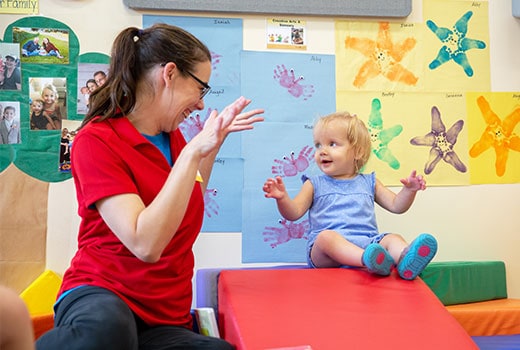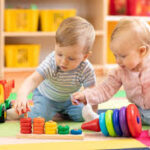
The Power of Play | 6 Benefits to Development
The Power of Play | 6 Benefits to Development
Play is a vital teaching tool, so it’s more than just fun and games! Children develop crucial, lifelong skills
through play as they interact with others. All of these six advantages are crucial for developing wellrounded children.
✓ Acquire Physical Abilities
Physical play is one of the most cherished memories of childhood. Imagine a toddler crawling toward his
favorite stuffed animal or a young girl scaling the jungle gym at recess.
Kids’ physical development depends on active play. It assists kids in honing their balance, coordination,
gross-motor (large movements like crawling and walking), and fine-motor skills (more minor activities
like picking objects up).
Numerous studies have been done on the health advantages of leading an active lifestyle, and the same
is true for our kids.
✓ Express and Process Your Emotions
Imagine living in a world where children can eat cookies for breakfast or where there are no dreadful
spiders! Children can remove frightening elements from their make-believe worlds through the
enchantment of play and safely act out otherwise forbidden events.
Children invent fictional settings, people, and stories that reflect their emotional states and teach them
how to express and control their emotions. They learn to manage their feelings through play as they
express their fear, frustration, anger, and aggression in an environment they control.
✓ Boost Social Skills
Some of life’s greatest treasures are the friends you made when you were young while playing tag,
making forts, or learning code languages. Children learn how to form and keep those friendships
through play.
Children develop their social abilities as they navigate group dynamics through cooperative play. It
teaches kids how to cooperate and make concessions to others, acknowledge and respond to others’
emotions, share and be affectionate with others, resolve disagreements, and follow the rules.
Children can comprehend social duties and norms thanks to these crucial early lessons! In addition to
helping people build relationships, social skills are essential for promoting academic success.
✓ Boost Cognitive Capabilities
Children’s brains grow more quickly between birth and three than at any other time in their lives. At this
point, individuals will begin to acquire and fully comprehend cognitive abilities, including paying
attention, reasoning, recalling lessons learned and experiences, and motor abilities
.
Playing with your child as they explore items and physical locations and learn to interpret sights and
sounds can be one of the finest methods to encourage brain growth and reinforce these essential
abilities. Children get the chance to practice making decisions through self-directed play.
An essential component of cognitive control is choosing a game, concentrating on it, and finishing it,
which helps develop planning skills and attention.
✓ Boost Originality
Think big! We continually repeat it to our kids. And that’s when it starts to play.
Children can fully allow their imagination to run wild during play and construct their own, in charge of
themselves. Space will enable kids to explore new options and think creatively to develop original ideas
and overcome problems.
In a recent study of more than 1,500 CEOs from 33 industries across the globe, CEOs said that creativity
would be more important than any other skill for successfully navigating an increasingly complicated
world.
✓ Improve Your Communication Skills
It’s not always simple to interpret people’s intentions. By listening, observing, and occasionally spotting
minimal cues, children must learn to interpret what people are saying—and not saying.
Children develop their communication skills through cooperative play. They become adept at
interpreting body language and facial expressions.
They learn how to initiate and maintain conversations and communicate their needs and wants in a way
that won’t upset others or disrupt the group activity. Children’s communication and literacy
development benefit greatly from pretend play.
Children learn about symbolism when they pretend that a cardboard box is a letter, and the idea that a
letter represents a sound is one of its foundations







